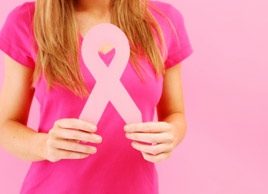A promising breast cancer program worth supporting
PYNK helps women under 40 navigate breast-cancer treatment while helping to preserve their fertility, sanity and more

Source: Web exclusive: February 2009
Given the wide promotion of three-day breast-cancer walks, runs for the cure and websites devoted to breast cancer awareness, new drugs and statistics, you may be surprised to discover that women under 40 with breast cancer are still relatively under-served.
“Although these young women represent only five percent of all breast cancer patients, they are more likely to be diagnosed at a relatively late stage of cancer, more likely to die of their disease and, even if cured, suffer much more in terms of psychological problems,” says Dr. Ellen Warner, a medical oncologist, University of Toronto associate professor of medicine and founder and director of PYNK: Breast Cancer Program for Young Women at Sunnybrook’s Odette Cancer Centre in Toronto. Research also indicates that these patients long for more peer support, assistance within the treatment system and information on issues specific to them, such as early menopause, fertility and breast reconstruction.
How PYNK helps younger women
Enter PYNK. In addition to researching breast cancer in this understudied group, the groundbreaking program offers a “nurse navigator” to guide patients through treatment and improve their access to therapists, geneticists and other health professionals. “Breast cancer comes at the worst possible time in these young women’s lives,” says Dr. Warner. “They’re in school or building careers, they’re single or in early relationships, or they have very young children—they’re busier, yet they often have less money than older women.” They are also more likely to have a mastectomy and the body-image issues associated with that. Plus, they’re often plunged into menopause as a result of their treatment and experience more nausea from chemotherapy than older women.
Crystal Kramer, a mother of a two-year-old daughter and a managing partner of a busy casting agency, fits the profile to a T. One of the patients in the PYNK pilot program, she was just 33 when she was diagnosed with breast cancer in April 2008. Even though Kramer had known for years that she had breast cancer susceptibility gene 1 (BRCA1)—she actually cancelled a preventative double mastectomy three years ago when she found out she was pregnant—it didn’t make the diagnosis any less harrowing. “It was extremely overwhelming—I was working 12 to 14 hour days at the time, we had a little girl and not a lot of family in Toronto,” she explains.
Stephanie Burlein-Hall, the advanced practice nurse whose role is to help PYNK patients navigate through the breast cancer experience, went to every early appointment with Kramer. She facilitated clinic appointments to help Kramer examine her fertility options until the results of her lymph-node scan made immediate treatment a priority, almost certainly ruling out the possibility of a second child.
“Twenty-eight of 31 lymph nodes removed tested positive for cancer,” says Kramer, who can’t say enough about Burlein-Hall’s support. “I asked Stephanie if she could get me the name of anyone who survived what I’m doing, and she found a woman who had 41 positive lymph nodes and is still around eight years later.” Burlein-Hall even looked into childcare options for Kramer, who is the sole breadwinner until her American husband can legally work in Canada. “Because I’m self-employed, I don’t qualify for any financial coverage,” says Kramer.
PYNK’s present and future
Warner anticipates that about 100 women per year will use PYNK, which is financed entirely by private donations. Ultimately, she hopes to broaden the program to other regions and provinces and continue with clinical trials, group-therapy studies and research examining why breast cancers in younger women are so much more aggressive and which treatments work best for women under 40, who generally have higher hormone levels than older women.
Having completed chemotherapy, Crystal Kramer is undergoing 25 radiation treatments. She still doesn’t know her prognosis in the long term. “I feel positive,” she says. “I just want to be here for my family.” What she does know is that PYNK needs and deserves donations. “This program needs to be a staple across Canada," she says. "Cancer research is important, but we also need to support the people who have the disease.”
How you can help PYNK
Contributions can be made via cheque made out to Sunnybrook Foundation, PYNK program. You’ve probably heard that every donation counts, and in this case, it’s literally true. You should e-mail Dr. Ellen Warner at [email protected] to let her know if you donate, so that she can budget accordingly.
Don’t miss out! Sign up for our free weekly newslettersand get nutritious recipes, healthy weight-loss tips, easy ways to stayin shape and all the health news you need, delivered straight to yourinbox.




